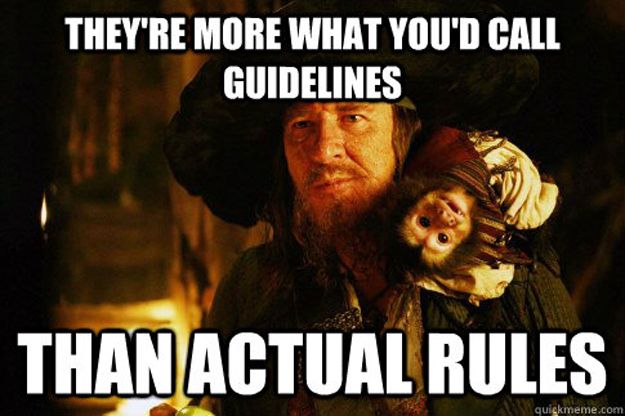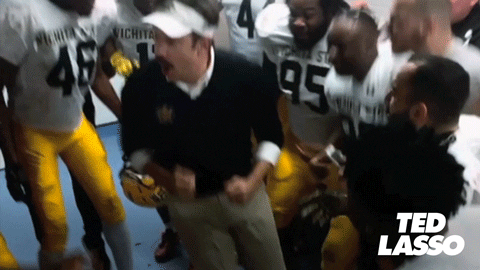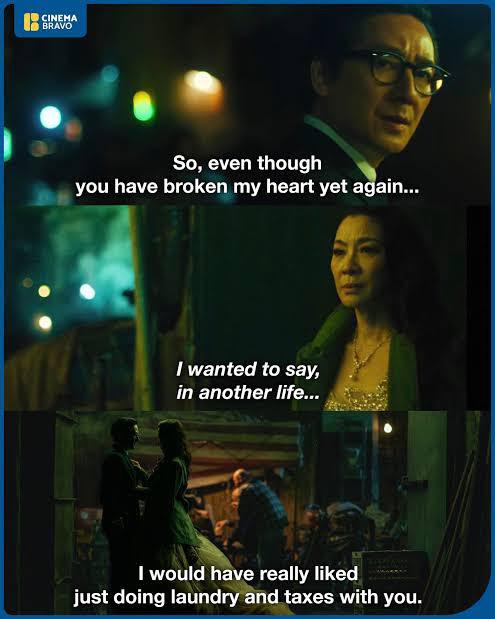5 details that should be in your script by page 10-ish (and one that shouldn’t)I’m not going to sugar coat it, a lot of scripts that I’ve read are not great. But they could be. Between my role as a development executive, a mentor, and teacher I’ve read thousands of pilot and feature scripts from new and experienced writer alike. Some, but not many, have blown me away. Their characters, descriptions or even lines of dialogue stayed with me years after I read them.
Whose story is it?The number one most important thing you need to do is clarify whose story it is. That doesn’t mean you have to introduce the main character on page one (although it helps) but make sure there’s no confusion on the reader’s part as to who is important. In “Casablanca,” the main character, Rick, doesn’t show up for several scenes, but he’s present because other characters talk about him. A little like how in “Ted Lasso” we don’t actually meet Ted until page 4, but between Rebecca’s plans for a new coach and the newscaster talking about him and showing a video, it’s clear he’s the main character. Even if the focus of the script changes, lead the audience to think a story is going to be told from a certain character’s perspective. Remember in “Psycho” where we all thought the story was about Janet Leigh’s character? Then BAM from out of nowhere she gets killed. It wasn’t that the script was vague up to that point about who the center of the story was, but things changed as soon as she checked in to that motel. What does the main character’s normal life look like?Right off the bat you want to show the reader what the main character’s normal life looks like and how they feel about it so we understand the impact on them when it changes. In “Star Wars” we understood Luke was a bored farmer and more than a little resentful that his friends were off finding adventure while he was stuck on a rock. If he loved farming and never wanted to leave, think of how different the movie would have been?
Even in a TV pilot, the main character’s life should go through some kind of change or transition pretty early on. In “Breaking Bad” we learn early on Walter White is a miserable man, working as a teacher and part time at the car wash and getting none of the respect he thought he’d be getting when he was younger. And then it all gets worse. Bonus points if you can make it clear what happens to them, what gift or weapon they’re given or what curse is laid on them that activates the change in their lives all before page 10(ish). What does the main character want?Usually, in character driven scripts, whatever is normal for the main character is the exact opposite of what they want, even if they don’t know it. In “How to Train Your Dragon,” Hiccup is the scrawny, often overlooked son of the Viking Chief who we know by page 2 or 3 longs to earn the respect of his father and fellow Vikings by being manly and tough. In a television series, what the main character wants could be more complicated, like in “The Last of Us” Joel wants a lot of things. In the very opening, he just wants a break. Soon after, it's to survive the zombie outbreak. All super clear goals stated early on so we can sit back, relax, and let the rest of the story unfold at it's leisure. Eventually his goals get more complicated. He wants to find his missing brother, which leads him to taking the job to get Ellie to the resistance fighters, and ultimately to see if her blood can be used as a cure. It gets more complicated, but opens with a easily understood character motivation. Even a medical or legal procedural, where the problems come up and are resolved on a weekly basis, episodes open with a patient needing help or finding a body. The main character wanting to find the cure or catch the bad guy is the driving force of the show, and we're reminded of that each week by the end of act one. What’s at stake if they don’t get it?You’ve made it clear whose story your script is telling, and what they want/how they want their life to change. Congrats! But what happens if they don’t achieve it? What’s at stake? Hiccup wants his father’s approval, but what’s the downside if he doesn’t get it? Just a lifetime of humiliation and never feeling good enough, no big deal. In “Everything…” the universe is at stake, her sanity, and at the very least their laundry business, all of which are pretty big stakes. And all of which are either stated up front or hinted at by the end of act one. A great pilot script will hint at what’s at stake for the main character if they, over the course of a season or the series, don’t achieve their goal. In “The Flight Attendant” we’re told about halfway through the pilot that Cassie needs to figure out who killed the dead guy she woke up next to and that her freedom and possibly even her life is at stake. Even a broadcast network sitcom like “Abbot Elementary” has stakes, they’re just smaller ones that regular people face every day. The goal/need of having to replace a carpet is right there in the cold open. When is it over?There’s a quote I love from feature writer Doug Wright that goes something like, “There’s no greater way to earn an audience’s trust than to let them know when they get to go home.” In those first ten to fifteen pages of your pilot or feature script, the reader should have a pretty good guess where your story will end. Notice I didn’t say HOW your script should end, but the gist of what the main character is working toward. In the first ten minutes of “Jaws” you knew the movie was going to end with a shark vs. sheriff battle. Who would win and how was the mystery that kept you glued to the screen. Everyone knew the Titanic was going to sink in “Titanic,” but who would live and who would die? You had to read on to find out. “Everything…” sets up the ending will be back at the IRS when they return with their paperwork, but the ride getting there was pretty wild. The same is true of your pilot script, but there you have to do double duty. It needs to be clear early on when the pilot episode will end, AND where the series might end. A show like “The Mandalorian” does a great job of setting up a goal for each episode that leads them to the next goal and the next. The pilot for “Ted Lasso” sets the lives of several characters in motion, but you know the pilot will end with Ted’s arrival in London and if you’re clever, you’ll have figured out it will end on what’s most important to him, his family. From the pilot, it’s a pretty good guess the ongoing series will be a combination of sports and personal problems. So What Shouldn’t You Include?A physical description. Unless it’s vital to the storyline, it doesn’t matter if they’re blonde or tall. The main character is a ballerina who is 3’ 6”? Okay, in that case it probably factors in to the story, so sure. An overweight beat cop who might lose his job if he can’t chase criminals? Set up his weight and his addiction to donuts to make the obstacles in the way of him keeping his job clear. But do you really need to say handsome or beautiful? It’s Hollywood, it’s a safe bet the intention is for all the actors to be easy on the eye. (Bless you British filmmakers for being bold!) And for the love of God, do not describe women as busty or curvy unless it’s an important part of their character. Jessica Rabbit? Fine. But for most women it doesn’t matter and can appear misogynistic and just plain gross. Need the first 10 - 15 pages of your script reviewed to see if you meet all the criteria? Reach out to find out more information about this new service!
0 Comments
|
Marla WhiteCoaching writers who are ready to bring their pitch or script to the next level. Archives
September 2023
Categories |





 RSS Feed
RSS Feed